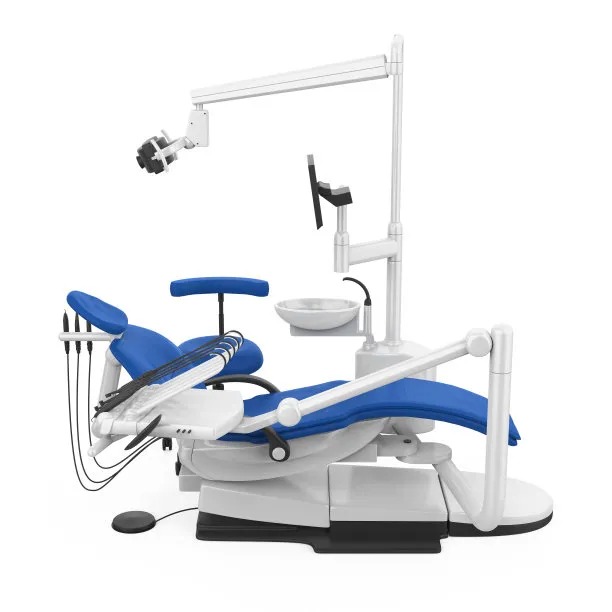Summary: Tooth extraction is a significant dental procedure that can greatly impact overall oral health and future dental care. Understanding the process, reasons for extraction, and potential implications are essential for both patients and dental professionals. This article explores the comprehensive nature of tooth extraction, detailing its indications, the procedure itself, recovery, and long-term care considerations. By addressing these aspects, we aim to enlighten readers on the importance of this dental intervention and encourage proactive dental health practices.
1. Reasons for Tooth Extraction

Tooth extraction may be necessary for various reasons, predominantly when a tooth is severely damaged or decayed beyond restoration. Dental caries, or cavities, are common culprits leading to extraction. If a cavity is extensive and encompasses a significant portion of the tooth structure, the possibility of saving the tooth through filling or crowns diminishes, necessitating extraction to prevent the spread of infection.
Another common reason for tooth extraction involves periodontal disease, which affects the supporting structures of the teeth, including gums and bone. When the disease progresses, teeth may become loose or infected, prompting the need for extraction to preserve overall oral health. Additionally, when teeth are impacted, such as wisdom teeth that do not have adequate space, extraction is crucial to avoid pain, swelling, and other complications.
Furthermore, orthodontic considerations can lead to tooth extraction. In aligning teeth, orthodontists may recommend removing specific teeth to create adequate spacing and improve bite alignment. Thus, whether due to decay, disease, or orthodontic needs, understanding the reasons for tooth extraction is vital for informed dental care decisions.
2. The Tooth Extraction Procedure
The tooth extraction procedure involves several crucial steps to ensure a safe and effective outcome. After a thorough examination and discussion of the patients medical history, dental professionals will take imaging, such as X-rays, to assess the tooth and surrounding structures. This preparation helps in planning the extraction process, allowing for a tailored approach to each patients needs.
Once ready, the procedure begins by administering local anesthetics to numb the area. In some cases, general anesthesia may be used, particularly for more complicated extractions. The dentist or oral surgeon will then loosen the tooth using specialized instruments like elevators and forceps, facilitating its removal from the socket. It is essential during this process to minimize trauma to the surrounding tissues to enhance recovery.
After the extraction, the dentist will provide instructions on post-operative care. This may include managing bleeding and pain, monitoring for complications, and maintaining proper hygiene to promote healing. Recognizing the importance of the extraction procedure can help alleviate patient anxiety and emphasize the dentist’s role in ensuring a smooth experience.
3. Recovery After Tooth Extraction
Recovery is a crucial phase following tooth extraction, and understanding it can significantly ease the healing process. Initially, patients may experience discomfort that can be managed with prescribed pain relief or over-the-counter medications. Applying ice packs to the cheeks can also help minimize swelling and pain during the first 24 hours.
Adhering to post-operative care instructions is vital for proper recovery. Patients should avoid strenuous activities, smoking, and consuming hard or spicy foods for a few days post-extraction. Gentle rinsing with salt water can help keep the extraction site clean and promote healing. Keeping the head elevated while resting can also aid in minimizing swelling.
Typically, the soft tissues will heal within a couple of weeks; however, complete healing may take longer, particularly if the extraction was surgical or involved impacted teeth. Regular follow-up appointments will allow dental professionals to monitor the site and ensure no complications arise, underlining the ongoing importance of dental care.
4. Long-term Dental Care After Extraction
The importance of long-term dental care following a tooth extraction cannot be overstated. Once the extraction site heals, it is crucial to maintain regular dental check-ups to ensure overall oral health. This ongoing evaluation can help detect any potential complications early and reinforce preventive strategies.
Additionally, patients may wish to consider restorative options to replace the extracted tooth. Options include dental implants, bridges, or partial dentures, which can restore functionality and aesthetic appearance while preventing adjacent teeth from shifting, which can lead to bite issues.
Moreover, maintaining a robust dental hygiene routine is essential for long-term oral health. Regular brushing, flossing, and the use of mouthwash can help prevent future dental issues. By recognizing the significance of dental health and care following an extraction, patients can establish a proactive approach in their oral health journey.
Summary:
Understanding the process of tooth extraction, including the reasons, procedures, recovery, and long-term care, empowers patients to make informed decisions regarding their dental health. By acknowledging the importance of extractions, dental professionals can provide better care and promote optimal oral health.
This article is compiled by Vickong Dental and the content is for reference only.
Vickong Dental
Vickong Dental is a large medical group established in Hong Kong in 2008 by professors from well-known medical universities in Guangdong and Hong Kong, as well as medical doctors from key national '985' universities (including Master's supervisors and senior professors). The chain of branches brings together expert dentists with PhDs and Master's degrees from Hong Kong and Mainland China, committed to providing high-quality dental treatment.
"Vickong Dental Practices the University Motto of 'Healing and Serving Society,' with a Stable Operation for Sixteen Years. It Has Been honored with Hong Kong Enterprise Leaders's Choice,' and is a Global Trusted Implant Center for the Nobel Implant System. Recommended by Hong Kong Metro Broadcast and Guangdong Television, it Serves Customers from Over Thirty Countries and Regions, Gaining the Trust and Favor of Citizens from the Guangdong-Hong Kong-Macau Greater Bay Area and Surrounding Cities.

Thousands of customers' unanimous praise
The most recognized and highly recommended dental service by customers in the Guangdong-Hong Kong-Macau Greater Bay Area
We Ensure You Receive Detailed Care and Attention Here
Hong Kong standards, Shenzhen prices, Your Trusted English-speaking dentists

Vickong Dental Medical-Grade Instrument Disinfection Process
Vickong Dental Medical-Grade Instrument Disinfection Process

Vickong Dental Chain: A Warm and Comfortable Environment for Treatment






Appointment Hours

Q&A
Why choose Vickong Dental?
Vickong Dental practices the university motto 「Medicine to Benefit Society」, with each branch bringing together highly qualified dentists with doctoral and master’s degrees from Hong Kong and the Mainland, and has maintained seventeen years of steady operation。Recipient of 「2024 Hong Kong Enterprise Leaders Brand」, 「2025 Hong Kong Enterprise Leaders Brand」, a Nobel Biocare Global Trusted Implant Center, and a brand recommended by Metro Radio Hong Kong and Guangdong TV。
To date, we have served customers from more than thirty countries and regions,earning exceptionally high word-of-mouth recognition and trusted recommendations from residents across the Guangdong-Hong Kong-Macao Greater Bay Area and surrounding cities
We have eight major branches in Zhuhai、Shenzhen,and a consultation and service assurance center in Hong Kong,so you can book a free consultation at any time for any questions,which is very reassuring.
If I do not accept the quotation after the CT scan, will I be charged??
No! As long as the actual treatment has not started, you will not be charged any fees.
Will there be any additional charges during the treatment process?
No, there won’t be any additional charges. Before treatment begins, we will clearly explain the treatment plan and its corresponding fees. Only after the patient agrees and signs the consent form will we proceed with the dental service.
Can I pay in Hong Kong dollars?
Yes. Vickong Dental accepts payment in Hong Kong dollars. The amount will be converted based on the exchange rate of the day, and the applicable rate will be clearly communicated to you in advance.
Can I reschedule my appointment at any time?
Yes. Please contact us via **WeChat** or **WhatsApp** as early as possible, providing your original appointment time and details, along with your preferred new date and time slot for rescheduling.













